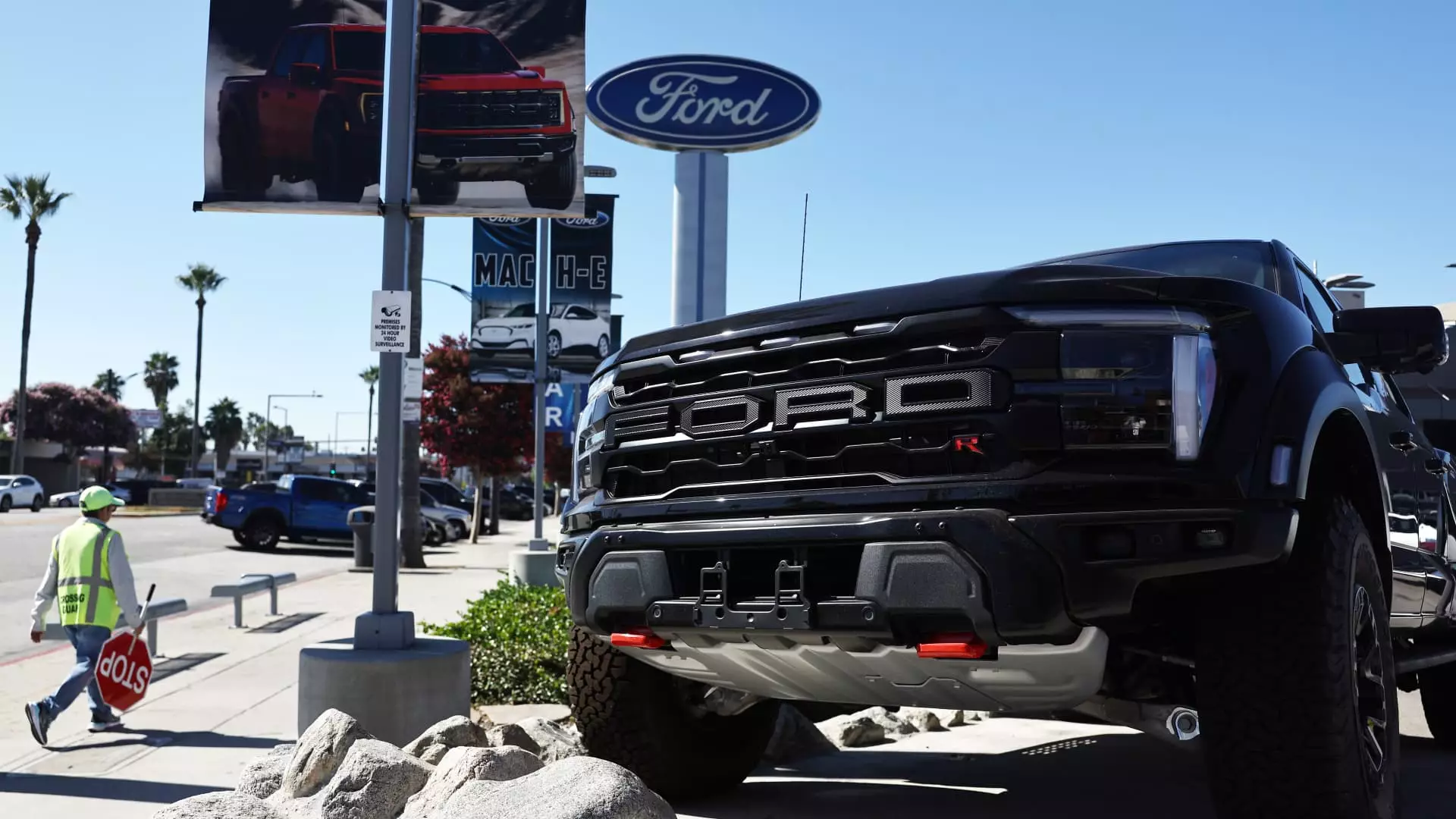The automotive industry has long been a volatile space, and President Donald Trump’s recent imposition of a 25% tariff on imported vehicles has stirred significant concern among manufacturers and consumers alike. The unexpected levies are not merely a tax; they represent a paradigm shift for how American automakers approach the market. Ford Motor Company, among the biggest players in the automotive game, is not one to sit idly by in the face of adversity. Instead, it has quickly mobilized resources to mitigate the negative fallout of tariffs while attempting to leverage its strong domestic position.
The complexities of tariffs typically create a trickle-down effect, leading to increased vehicle prices and diminished consumer confidence—which translates into a chilling effect for sales. Forward-thinking companies like Ford recognize the importance of strategy and adaptation in such turbulent times.
Ford’s Innovative Pricing Model
In response to these tariffs, Ford launched an employee pricing initiative dubbed “From America, For America,” aimed at creating an immediate appeal to U.S. consumers. This bold pricing strategy sells vehicles at or near invoice costs—a move that cuts into already slim profit margins for dealers. Critics often argue that such programs can destabilize the pricing structure of the automotive market, yet Ford seems to possess a clear understanding of the current climate. These uncertain times necessitate innovative approaches, and Ford’s initiative speaks volumes about their awareness of consumer psychology.
After all, in an era where uncertainty reigns supreme, promoting the message of affordability becomes a powerful tool for engagement. With a robust inventory at their disposal and a genuine commitment to supporting American workers, Ford aims to not just weather the storm, but to potentially emerge stronger. It gives the impression of a company willing to stand by its consumer base in tight times, fostering loyalty that could yield benefits down the line.
Seizing Market Opportunities Amid Chaos
Ford’s proactive measures demonstrate a strategic acuity that is refreshing in a landscape often characterized by reactive behaviors. While many automakers scratch their heads over the best way to respond to legislative disruptions, Ford’s leadership embraced a philosophy of “opportunity in chaos.” This perspective doesn’t merely advocate survival; it favors positioning the brand in a proactive way to attract consumer loyalty and engagement.
Marc McEver, a dealer for Ford, lauded this initiative as a “great play,” emphasizing the excitement that comes with a transparent, consumer-friendly program. The automotive industry thrives on consumer trust, and by providing tangible financial benefits through initiatives like these, Ford is not just making a sales pitch; it’s building a long-term relationship with the American public.
Competitive Responses and Industry Dynamics
Ford’s program hasn’t gone unnoticed by competitors, either. Rivals such as Stellantis and Hyundai are adapting their own strategies, with Stellantis rolling out similar employee-pricing programs. These subsequent moves further illustrate the ripple effect caused by Ford’s decision to go on the offensive. It’s particularly fascinating to witness how industry turbulence can inspire competition that ultimately benefits the consumer.
Analysts note that these strategies help solidify Ford and its competitors as distinctly “domestic” brands, prompting a renewed sense of patriotism among car buyers. This differentiation is crucial; as consumers become increasingly conscious of supporting American industries amidst global economic uncertainties, Ford’s promotion of its American roots could serve as a potent motivator for those looking to buy a new vehicle.
Consumer Behavior and Recession Readiness
Recent spikes in consumer traffic towards dealerships suggest that many are acting on immediate desires to secure vehicles before potential price hikes take hold. Reports indicate that March 2023 saw sales growth that far exceeded expectations, as buyers rushed to finalize deals before tariffs eroded their purchasing power. This behavior is indicative of a society that is not only reacting to immediate discounts but is also bracing for potential economic downturns, with analysts like Erin Keating predicting an increased likelihood of recession.
In this environment, consumer incentives become not just a marketing tactic but a critical component of survival. By offering strong incentives now, Ford not only caters to current demand but also hedges against future economic instability. The potential for recession adds a layer of urgency to consumer behaviors that businesses must exploit for success.
The Future of Ford and the Auto Industry
In this highly competitive landscape, it becomes ever more crucial for companies like Ford to maintain flexibility and adaptability. The decisions made in response to current tariffs reflect more than just immediate concerns—they signify a readiness to embrace a new era of automotive sales. As Ford forges ahead with innovative strategies, one can only hope that the industry as a whole will learn from such examples and prioritize consumer experience. In challenging times, true leadership shows not just in survival, but in the ability to thrive while empowering customers.


Leave a Reply